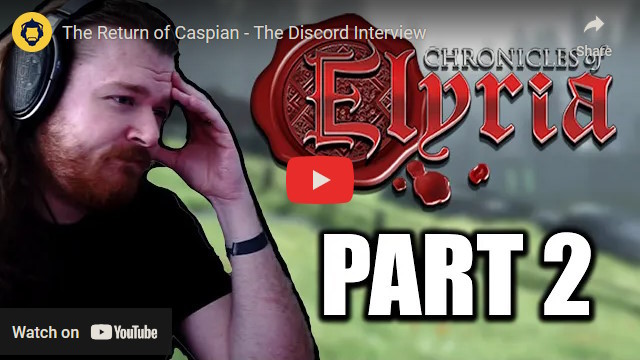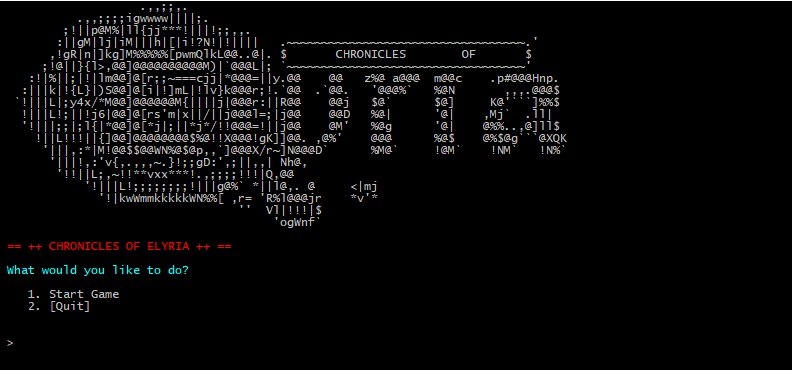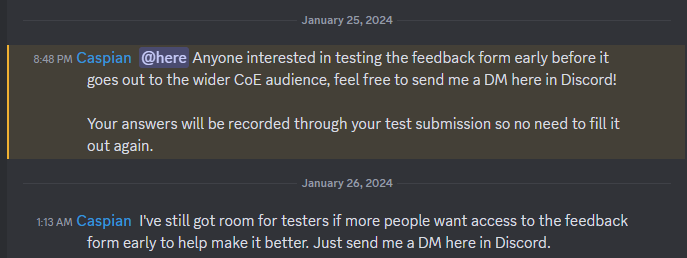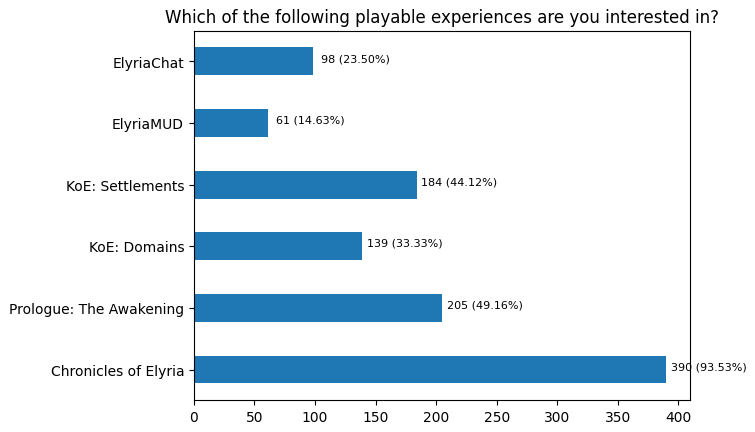Since Jeromy Walsh posted his "State of Elyria: Into the Abyss" blogpost about the cancellation of Chronicle of Elyria, there have been quite a lot of new developments.
Once Walsh heard that the Kickstarter backers decided to file a lawsuit against Soulbound Studios, he did a 180 and claimed that he
never actually meant to shut down the project and work would continue:
On March 24th I posted a “State of Elyria” update for our game, Chronicles of Elyria, to our blog. In that post, I informed our community that, due to the under-performance of our recent Settlers of Elyria event and the economic impact of the global COVID-19 pandemic, I had made the hard decision to lay off staff and suspend development. However, it was my aim to leave the blog post with a message of hope that we could find a way to secure additional funding, honor your pledge package rewards, and deliver the game we promised.
...
It was never my intent to permanently end the development of the game, disregard your contributions, or fail to deliver what we promised.
Back in September 2016, Walsh
promised to release an audit of his business activities if he failed to deliver. Although it is suspicious that he explicitly references balance sheets and not a full audit. A balance sheet refers to the financial position of company in a specific point in time and does not actually provide historical expenditure information.
Finally, 'No refund' brings with it a stigma of additional risk. But of course, we'll do just as our competitors are doing. In the event that Soulbound Studios is, for some reason, unable to complete development due to a lack of resources, we'll make available our balance sheet so backers can see how the money was spent.
Walsh would go on to
claim that he did run an independent audit, but he wasn't able to share the result because of the lawsuit:
Our FAQ was recently updated to cover some of these points, but to address it as much as I’m able, sadly we aren’t in a position to share the forensic audit of our studio. I think at the heart of your question, our backers want to know that the funds they contributed to development were appropriately spent - I totally get that - and all I can say on the subject is that an independent external auditor evaluated Soulbound Studio’s accounts and was entirely satisfied with our companies statements, expenditure and recorded use of funds.
Walsh allegedly decided to switch his effort to the development of "Kingdoms of Elyria", a multiplayer town-builder in the vein of Banished or more closely the multiplayer version of
Kingdoms Reborn.
A few videos were released of the work in progress version of KoE, it doesn't seem like he put in any effort:
Over the past ~2 years, Walsh has continued to post blogposts on alleged progress and even released some roadmaps, but he never did deliver anything meaningful.
Towards the end of 2022, the lawsuit against Soulbound Studios was dismissed by US courts. Walsh made some
interesting comments on the dismissal:
Last week, the United States District Court for the Western District of Washington dismissed the class action lawsuit which was filed against Soulbound Studios. As a matter of law.
(Sidebar: I considered ending that sentence with an exclamation mark, emojis, and even an excited expletive. But the fact is, there's no punctuation or emoji that adequately conveys how relieved I am by this decision. So, I just went with the classic, informational period.
...
The court decision to dismiss the lawsuit comes as a victory to both all those who have, or will use crowdfunding as a source of seed funding for innovative projects, as well as (and most importantly) the backers of Chronicles of Elyria.
...
With respect to our backers, now that the legal matters are behind us, and the costs finally capped, we can at last, after two years, put 100% of our attention back on the business of making games. And that's exactly what we're going to do!
Walsh never did release the results of the audit that allegedly should no sign of improper behaviour.
Back to the present. Just last week, Walsh released a
new blogpost that can be best described as an attempt to position himself as a misunderstood innovator going through the trials of failure. It is worth reading in full if you have time. Some highlights below:
Walsh goes through a massive list of business self help books that he's been reading:
Over the past few years, I have dedicated considerable time to learning. This education came from reading books and reflecting on my choices and experiences from 2016 to the present. The latter was particularly impactful, as I could apply the knowledge gained from my reading to my personal experiences.
...
After reading both the "Obstacle is the Way" and picking up "The Daily Stoic," I was looking up additional quotes on stoicism when, arbitrarily, I encountered another quote that's often incorrectly attributed to Mark Twain:
"The person who
does not read has no advantage over the person who
cannot read."
...
I began reading as voraciously as I could. Generally speaking, a couple of books a month. Some of my favorites in 2020 were
Start with Why, by Simon Sinek,
The Hard Thing About Hard Things, by Ben Horowitz, and
The Four Disciplines of Execution, by Sean Covey et al.
The first one is because Simon Sinek is a contagious optimist. In reading
Start With Why I was inspired to understand what about CoE made people love it.
...
I once again found it hard to move forward, so I returned to my reading. In 2021, three of the better books I read were:
- Essentialism: The Disciplined Pursuit of Less, Greg McKeown
- Losing My Virginity, Richard Branson
- Meditations, Marcus Aurelius
The post includes a lot of musing about Walsh's "experience" as a C-Suite Executive/innovator:
The second, "Losing My Virginity," was a book I started reading as part of a book club I'd joined with other executives.
...
There were fewer nuggets of useful insight from that one and more just a glimpse at the challenges and struggles other CEOs face - including legal struggles and disagreements. Oddly, this helped make my situation seem more palatable. Not that I recommend anyone get sued, but after reading Branson's book, it almost felt like a right of passage.
...
The first book is from Tony Fadell, another CEO who had his share of failures until he eventually developed the iPod, iPhone, and the Nest. Three groundbreaking, innovative products that came only after years of trial and error and multiple failures.
...
But, as I quickly discovered, being a CEO is a full-time job between HR, accounting, PR ...
He blames some of his employees for CoE's failure:
I spent much of my time preparing for development rather than developing, leaving my junior programmer with far too much responsibility. Don't get me wrong. He was smart, talented, and even a former student of mine. But he was still a junior, and I didn't give him the support and oversight that he deserved to grow as an engineer.
...
I made several new leadership mistakes. Because I'd never been a Director before, only a Lead, I still needed to learn how to manage a Lead properly. I overstepped on some occasions and under stepped on others. Ultimately, I allowed the development of the Soulborn Engine to be moved to Node.js/TypeScript against my better judgment. Put briefly, to give my Lead breathing room to do their job and show I trusted them, I abdicated to them instead of delegated to them
Claims that development is going smoother with one (nominal employee) than with a team of ~20:
Given all of that, when in late 2022/early 2023, I found myself the only developer at Soulbound Studios, I decided to lean into my strengths. Stepping back into the Principal Engineering role, I'm in a really good place, and development is finally moving ahead at the speed and in the way I needed it to all along.
The whole thing reads like some sort of parody of silicion valley techbro types.







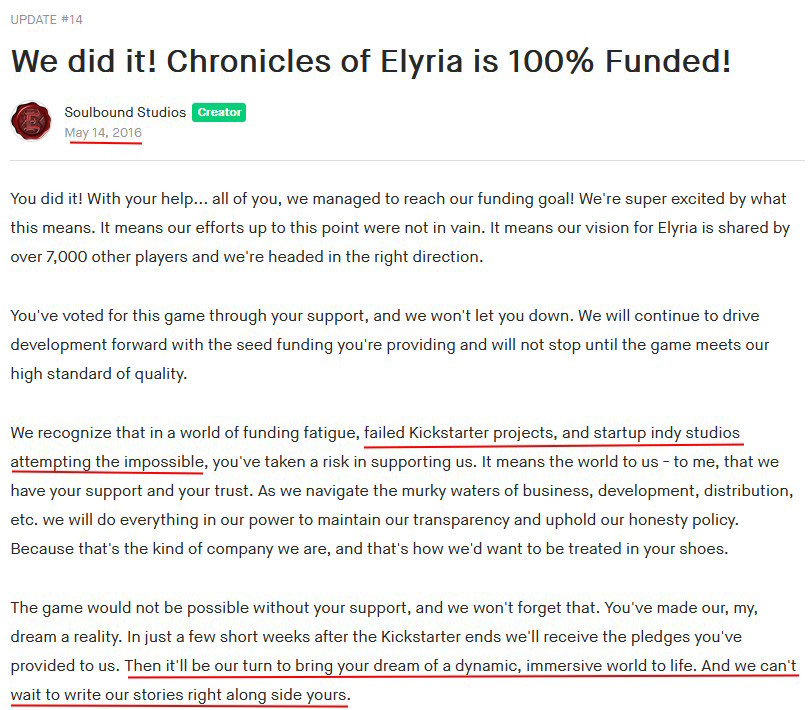
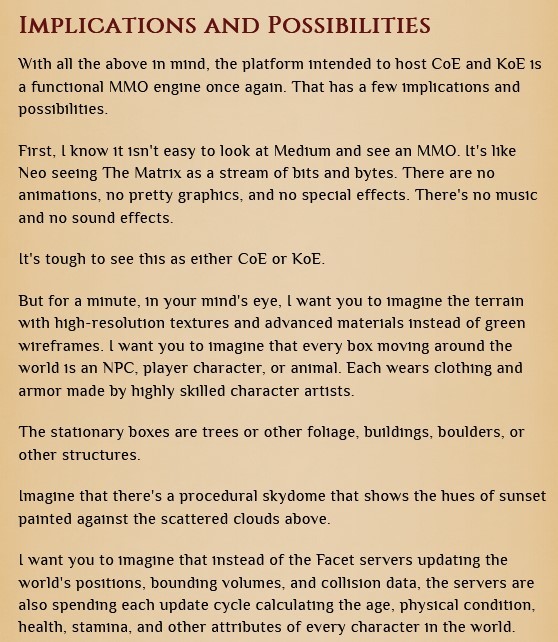
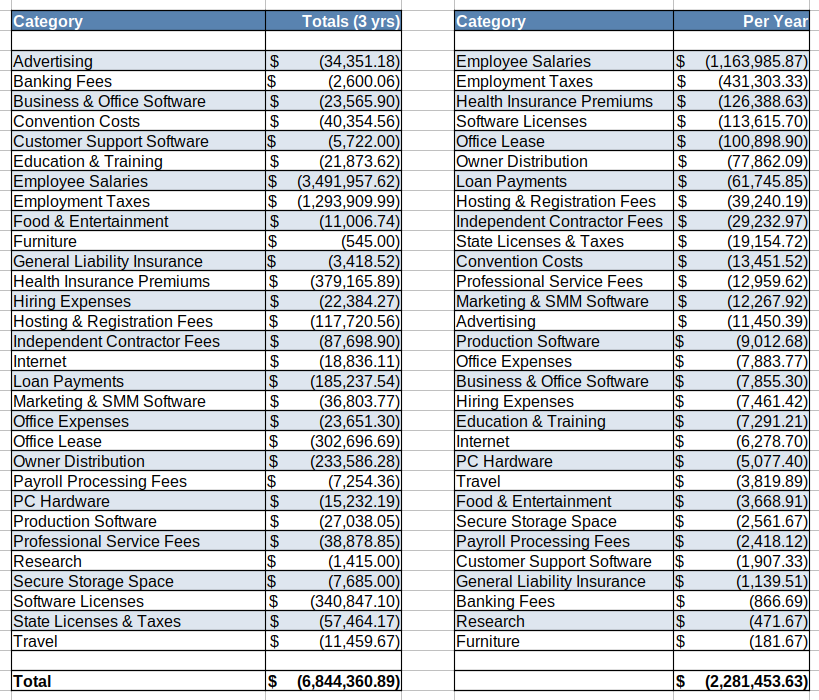

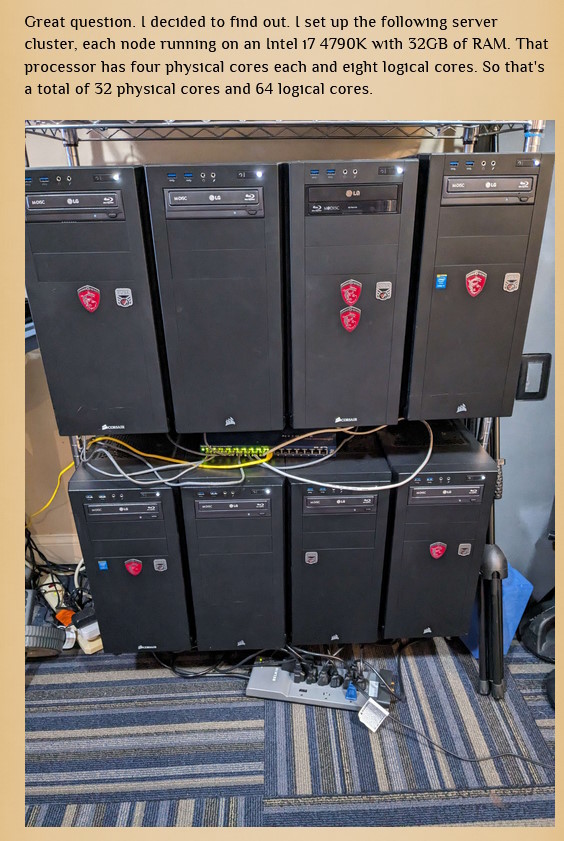

![Glory to Codexia! [2012] Codex 2012](/forums/smiles/campaign_tags/campaign_slushfund2012.png)




